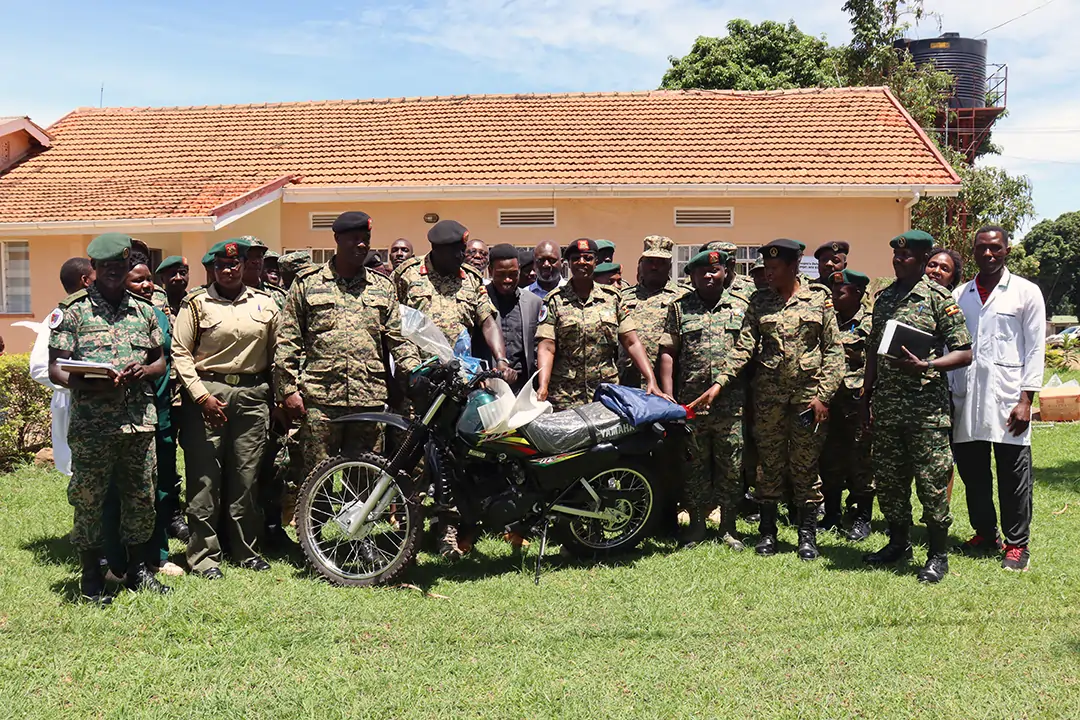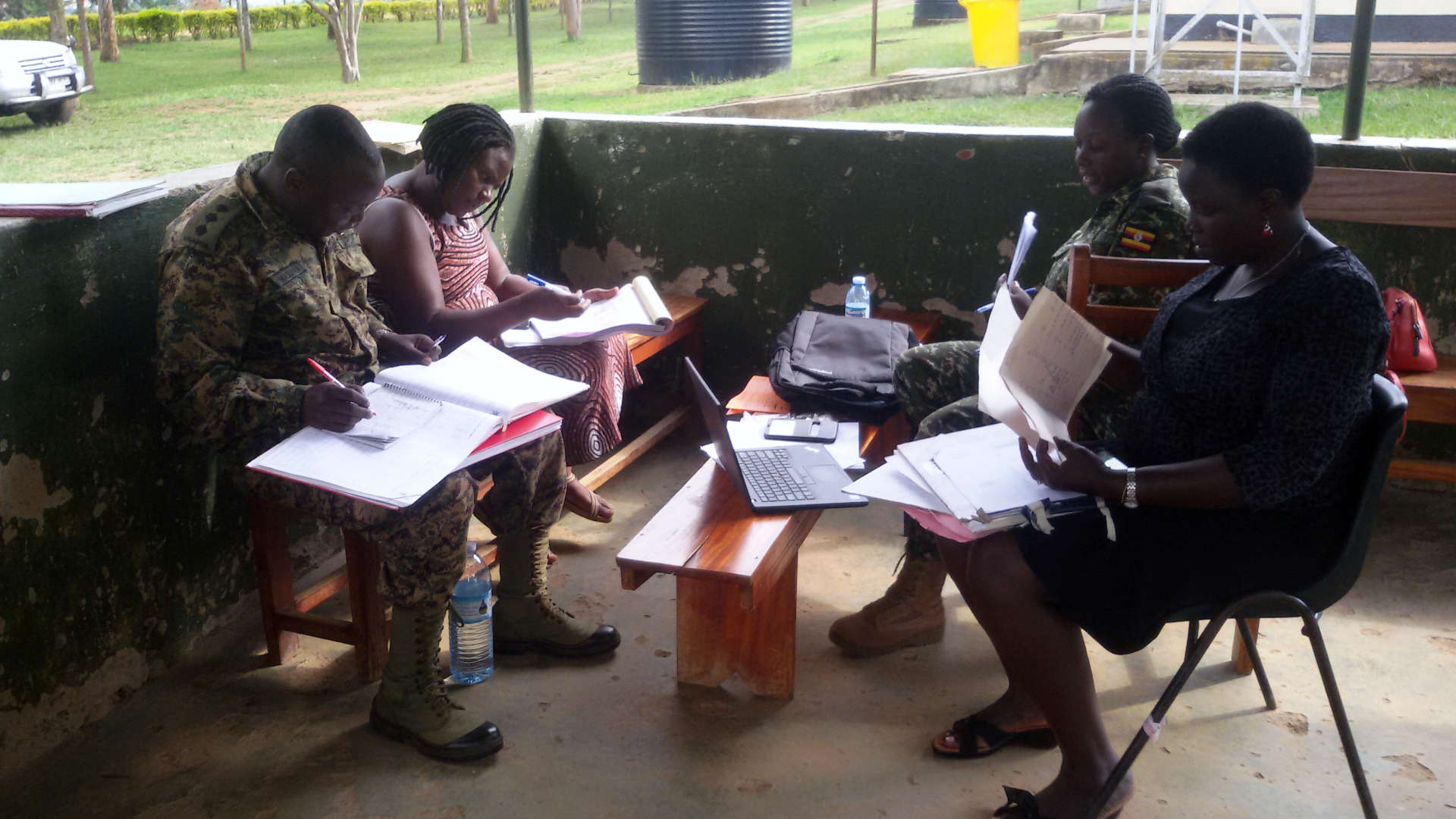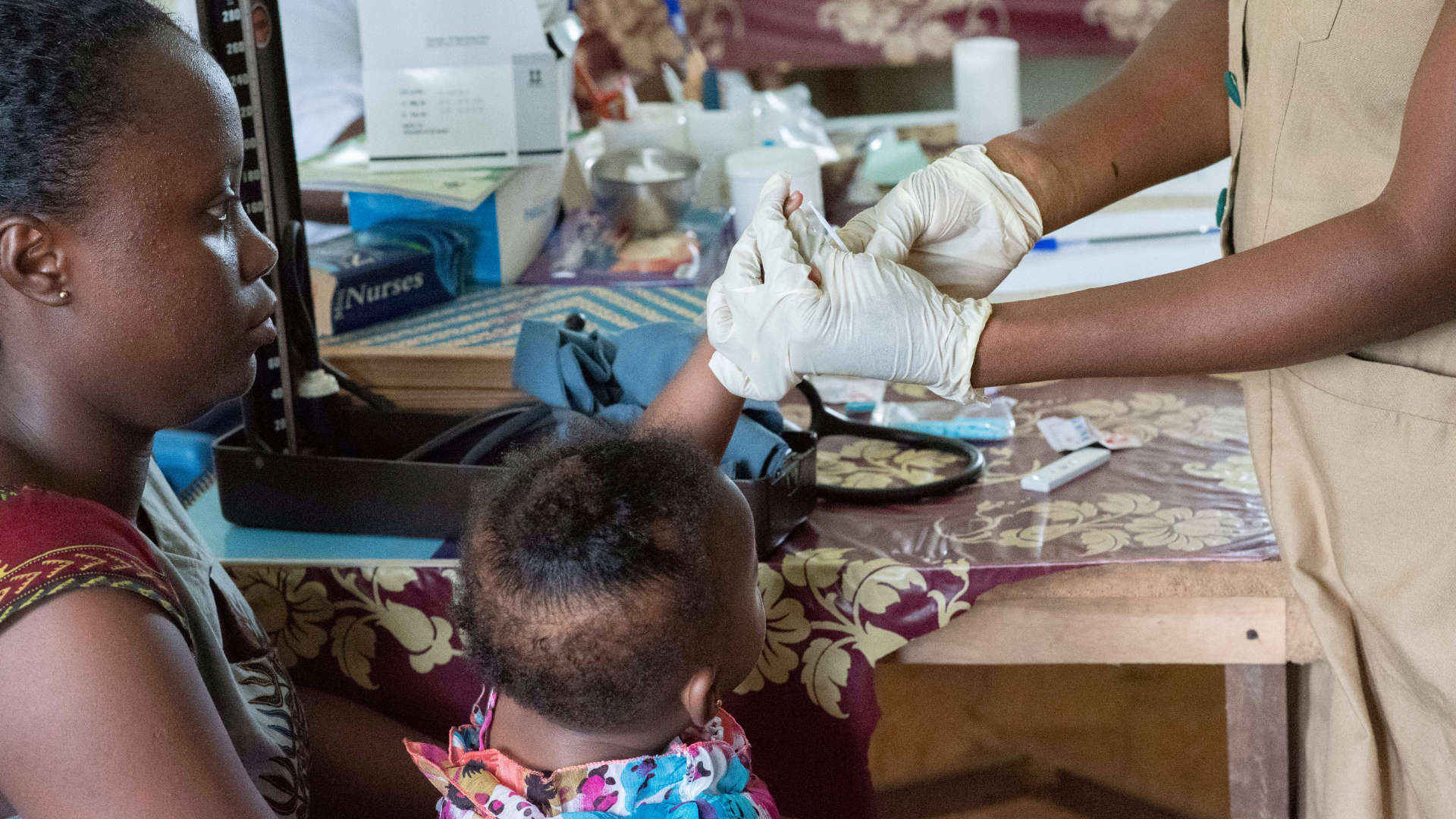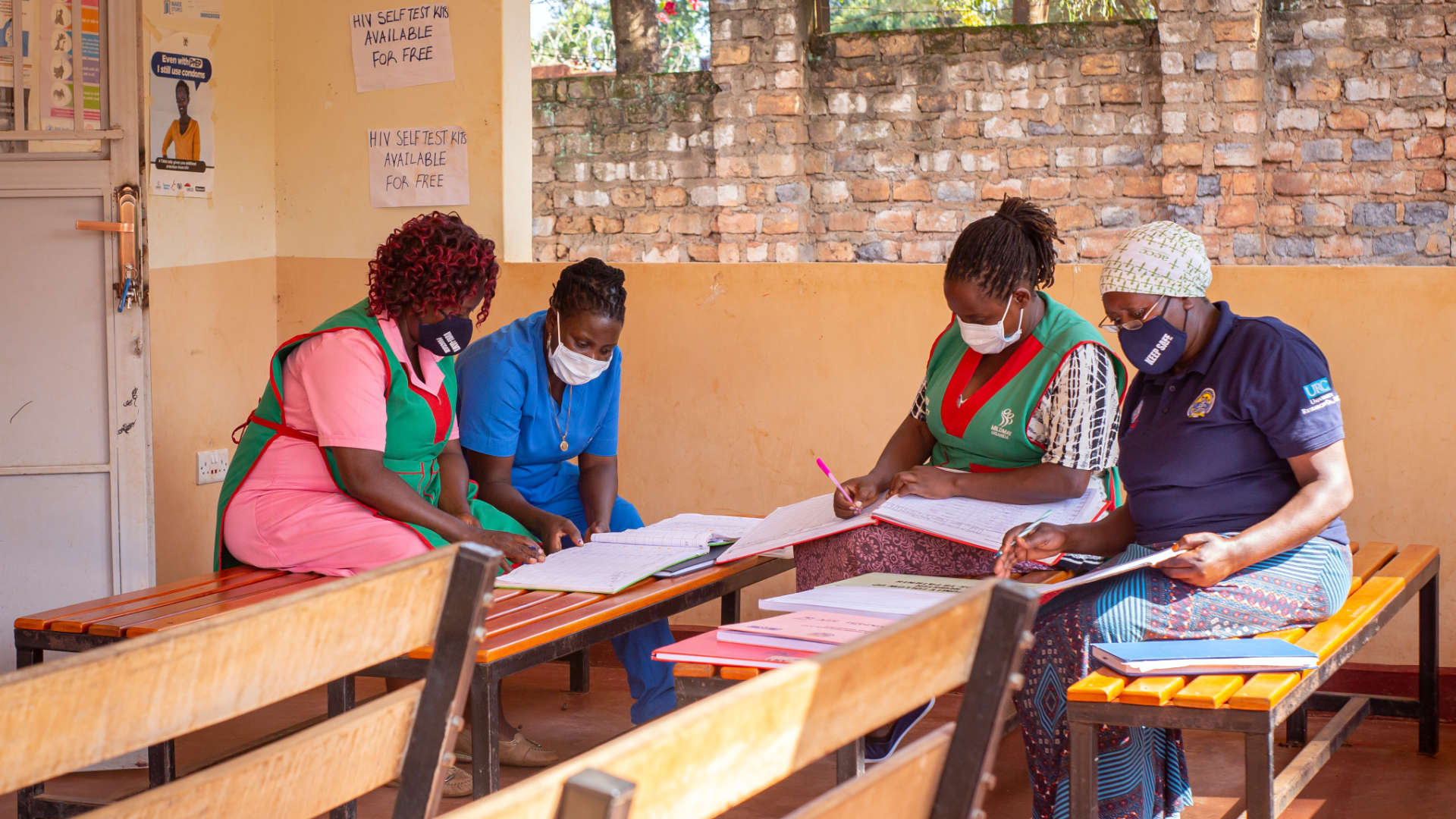The DoD Uganda URC Project supports the Uganda Peoples’ Defence Forces (UPDF) HIV/AIDS epidemic control efforts by improving access to and quality of care across 40 military health facilities.
The project supports UPDF health workers in selected health facilities to conduct outreach to troops deployed in hard-to-reach places. These outreach efforts are critical to ensuring continuity of treatment for military clients on antiretroviral therapy (ART).
Four-wheel drive vehicles are often used for outreach efforts because of the difficult terrain. The outreach teams regularly walk long distances or hire local riders to reach troops in some of the more remote locations that cannot be accessed by the vehicles. The UPDF Directorate of HIV/AIDS (DHIV) last received 10 motorcycles through the Department of Defense HIV Prevention Program (DHAPP) in 2013 that were distributed to 10 ART clinics, but most of these have since broken down beyond repair.
The DoD Uganda URC Project, with funding from PEPFAR through DHAPP, procured motorcycles specifically designed to handle the rough terrain in hard-to-reach areas.
The handover ceremony of the six brand new motorcycles to the UPDF Chieftaincy of Medical Services (CMS) by DoD Uganda URC Project was held on April 27, 2023. During the ceremony, Brigadier General Dr. Patrick Ocen, representing the CMS, explained, “One time…we discovered that a soldier would have to move 100 kilometers to access refill for his/her ARVs. No wonder we saw that they were having very high viral load because either they were not being accessed or they were accessed very late, or the commanders wouldn’t even release them.”
Brigadier General Dr. Patrick Ocen noted that these motorcycles will have an enormous impact on continuity of treatment, thereby reducing the risk of emergence of drug resistance and treatment failure. He also expressed gratitude to URC for strengthening UPDF capacity through both technical and logistical support.
“With these six motorcycles, riding to take these medicines to the people, I think we shall improve the quality of HIV services,” said Brigadier General Dr. Patrick Ocen.
During the handover, URC also gave UPDF eight centrifuge machines to improve sample processing, particularly for collection of blood plasma samples for viral load monitoring. With the recent focus on integration of non-communicable diseases management among the people living with HIV (PLHIV) in care, the project also provided 52 blood pressure monitors that will be distributed to all the military health facilities.
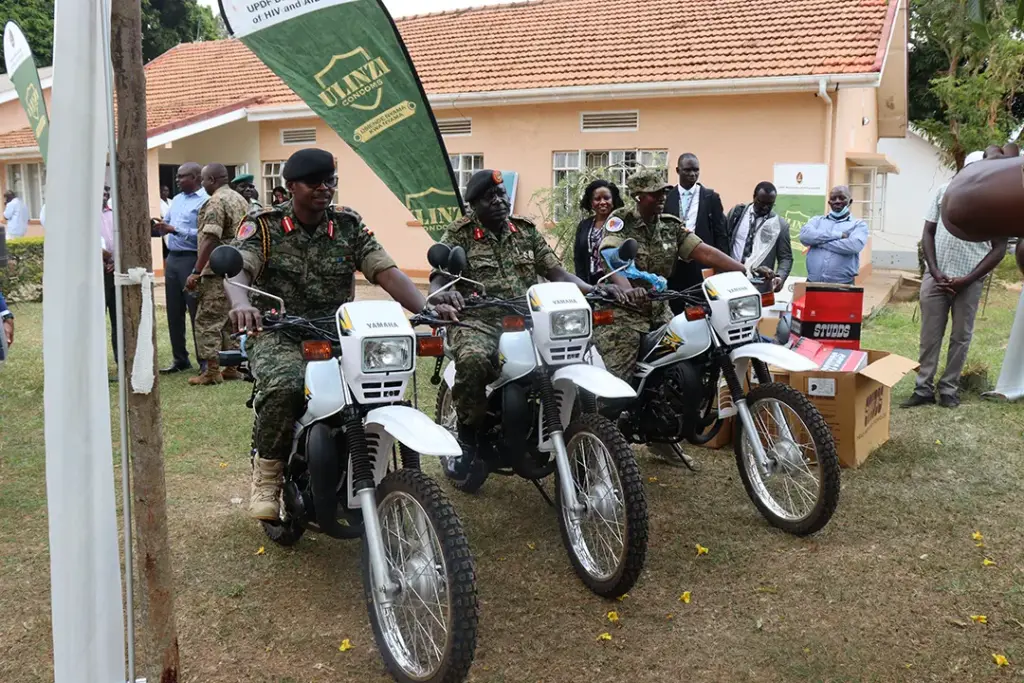
The motorcycles were allocated to Bihanga, Nakapiripirit, Kabamba, Moroto, Masindi and Bombo health facilities. For safety purposes, each motorcycle was accompanied by a riding suit, helmet, and riding gloves.
The handover ceremony was well attended by senior officers of the UPDF under the CMS including the Director of DHIV, Director of Personnel and Administration under CMS, Intelligence Officer, Political Commissar, Motor Transport Officer, Monitoring and Evaluation Officer for the DHIV, and several administrative officers. Junior officers and medical staff from the different directorates under the UPDF CMS also attended.
“With these motorcycles, we expect improved and timely care for soldiers deployed I hard-to-reach outposts and reduced cost of project outreach efforts,” explains DoD Uganda URC Project Director Dr. Bwayo Denis.
